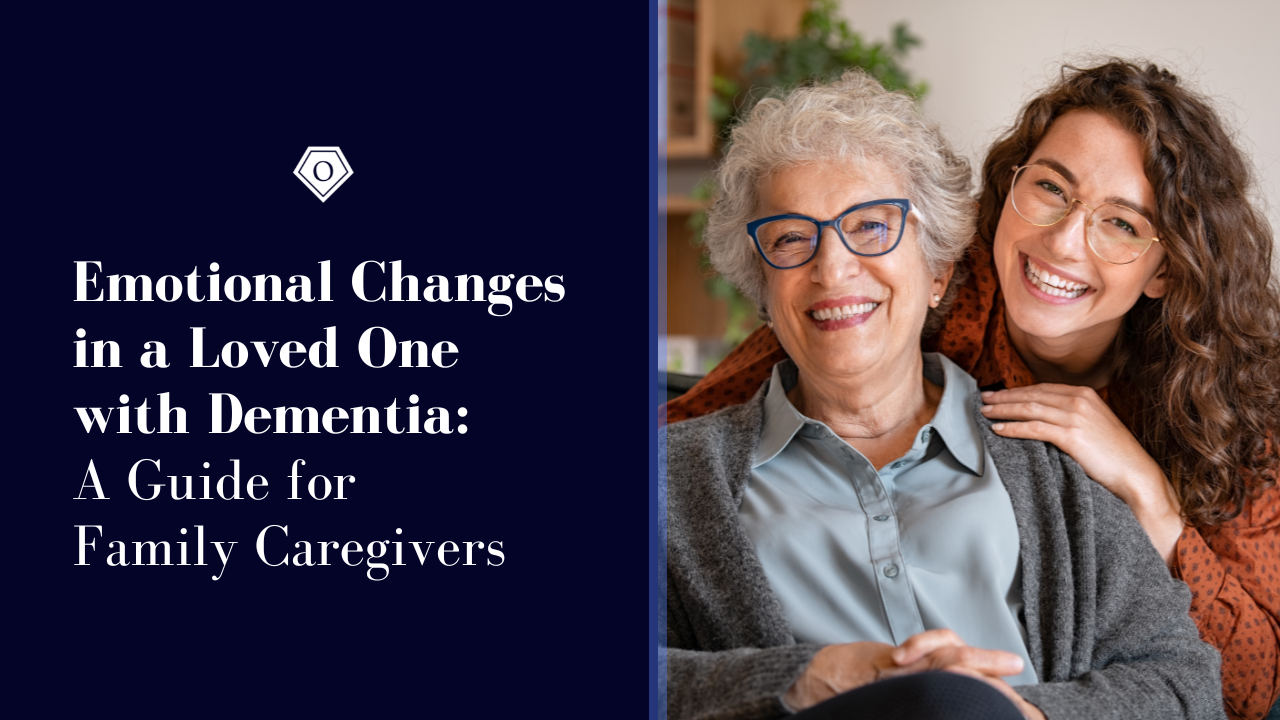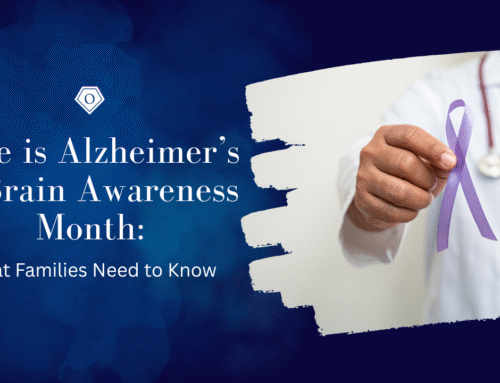Dementia is a complex and progressive condition that affects not only memory and cognitive abilities but also a person’s emotions and behavior.
Witnessing these emotional changes in a loved one can be one of the most challenging aspects of caregiving for family caregivers. Understanding these changes and how to respond can help the caregiver and the person with dementia navigate this journey with compassion and grace. In this article, we’ll explore common emotional changes experienced by individuals diagnosed with dementia and offer practical tips for family caregivers to provide support, including the benefits of hiring home health care.
Common Emotional Changes in Dementia
Anxiety and Agitation
As cognitive functions decline, individuals with dementia may feel confused and overwhelmed, leading to increased anxiety and agitation. This can manifest as restlessness, pacing, or verbal and physical outbursts.
Depression
Feelings of sadness, loss, and hopelessness are common among those diagnosed with dementia, especially in the early stages when they are aware of their declining abilities. This can lead to withdrawal from social activities and a lack of interest in hobbies they once enjoyed.
Mood Swings
Sudden and unpredictable changes in mood are another hallmark of dementia. A person may feel happy one moment and angry or tearful the next, often without a clear trigger.
Paranoia and Delusions
Some individuals may experience paranoia or delusions, believing that others are stealing from them or that they are in danger. These beliefs can cause significant distress and confusion.
Emotional Numbness
As the disease progresses, some individuals may become emotionally flat or unresponsive, showing little reaction to events or interactions that would typically elicit a response.
How Family Caregivers Can Help
Provide a Calm and Reassuring Presence
One of the most important things a caregiver can do is offer a sense of calm and reassurance. Use a gentle tone of voice, maintain eye contact, and offer physical comfort, like holding their hand or giving a hug. Consistency and routine can also help reduce anxiety and confusion.
Create a Safe and Comfortable Environment
To minimize confusion and agitation, make the living space safe and familiar. Remove potential hazards, reduce noise levels, and keep personal items and favorite objects within easy reach.
Engage in Meaningful Activities
Encourage participation in simple yet meaningful activities, such as listening to music, gardening, or looking through photo albums. These activities can provide a sense of purpose and joy.
Communicate with Compassion
Use clear and straightforward language when speaking. Be patient and give them time to process information and respond. Avoid arguing or correcting them, even if what they say doesn’t make sense. Instead, gently redirect the conversation if necessary.
Hire Home Health Care
One of the most effective ways to support a loved one with dementia is by hiring professional home health care. Trained caregivers can provide specialized care tailored to the individual’s needs, including managing medications, assisting with daily activities, and offering companionship. Home health care professionals are skilled in handling the emotional and behavioral challenges associated with dementia, providing much-needed relief for family caregivers. This support can help maintain the quality of life for the person with dementia and reduce the caregiver’s stress and burnout.
Encourage Social Interaction
Isolation can exacerbate feelings of depression and anxiety. Encourage social interaction, whether it’s through visits from friends and family, participation in community activities, or virtual interactions. Social engagement can provide a sense of connection and reduce feelings of loneliness.
Take Care of Yourself
Caring for a loved one with dementia can be emotionally and physically exhausting. Caregivers must take care of their well-being. Seek support from friends, family, or caregiver support groups. Consider respite care options to take breaks and recharge.
Caring for a loved one with dementia involves navigating a range of emotional changes, both for the person with the condition and their caregivers. By understanding these changes and adopting compassionate caregiving strategies, you can help your loved one feel more secure and supported. Hiring home health care is an invaluable resource that can provide specialized care and relief for family caregivers, ensuring that your loved one receives the best possible support throughout their journey with dementia. Remember, while the road may be challenging, you’re not alone, and resources and support are available to help you along the way.
Alzheimer’s and Dementia Care
Onyx Home Care’s neurological disorder care is built around a system of support. This service includes skilled home care as well as a unique program that centers on the patient’s interests and stage of illness. Our goal is to see happy family members, patients and caregivers. Often times, caregivers feel remote. Our team includes each person in the home care process to provide inclusive care that helps the patient thrive.






